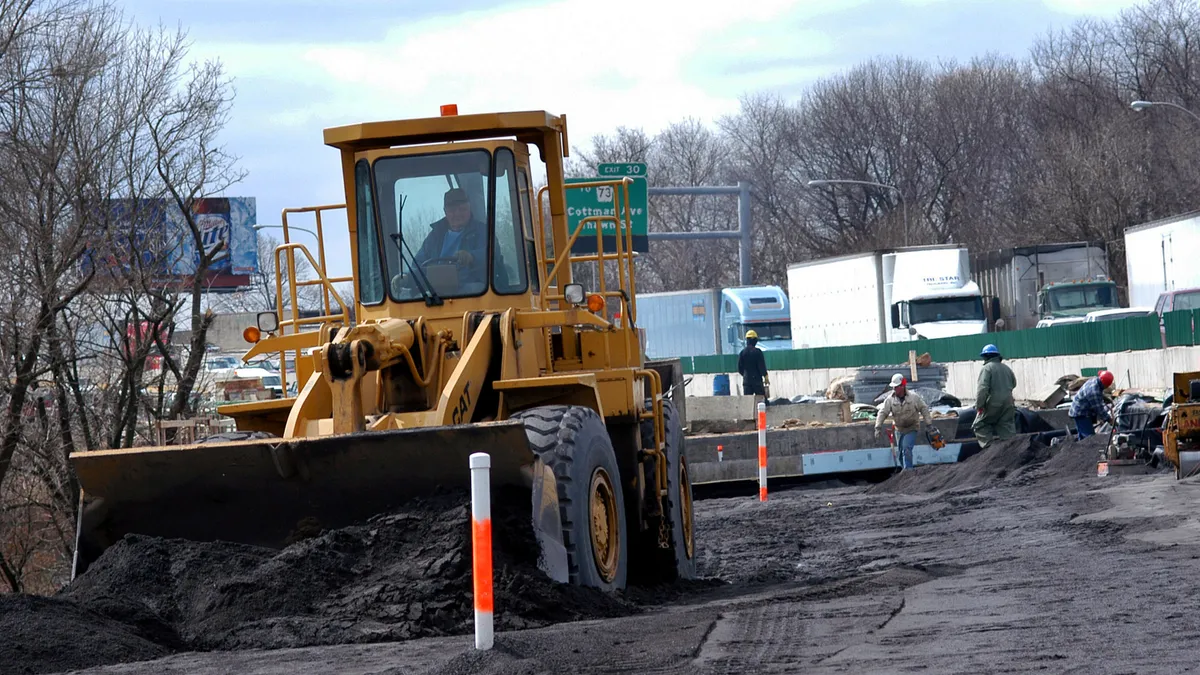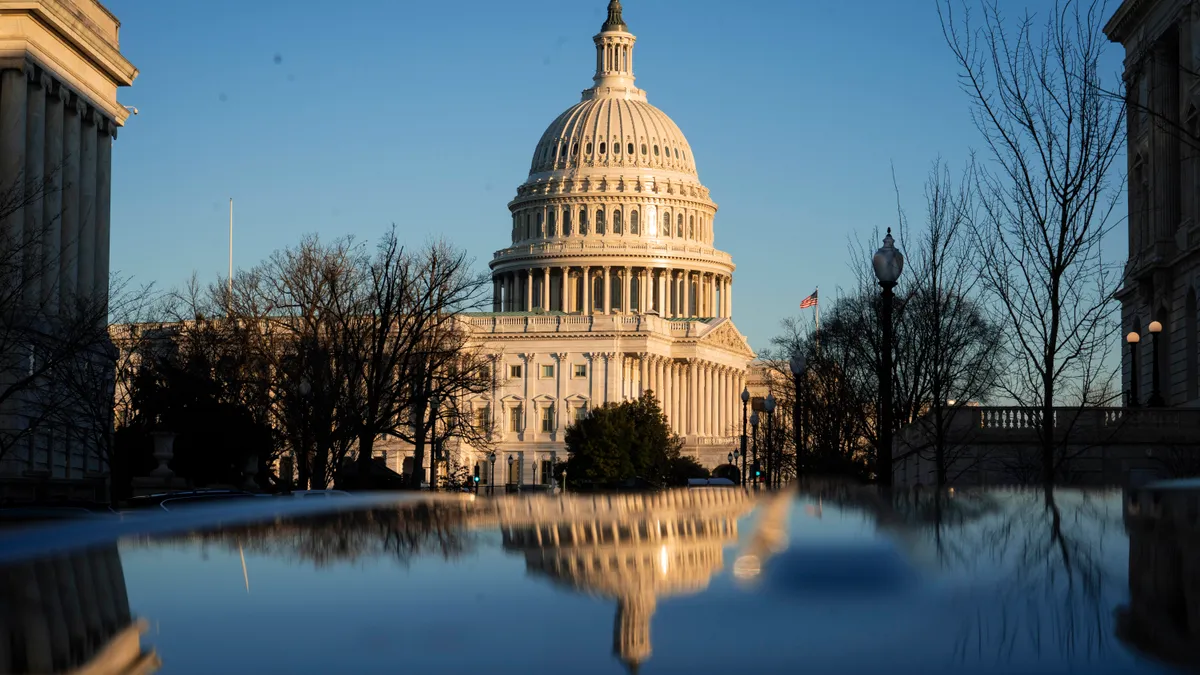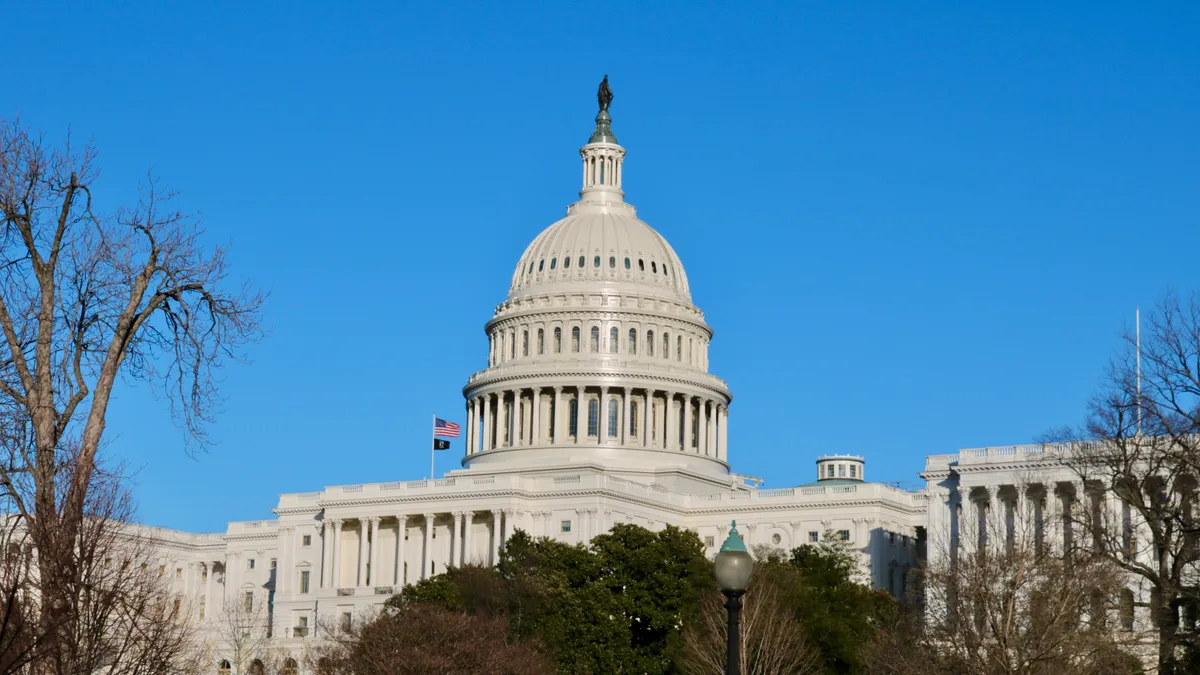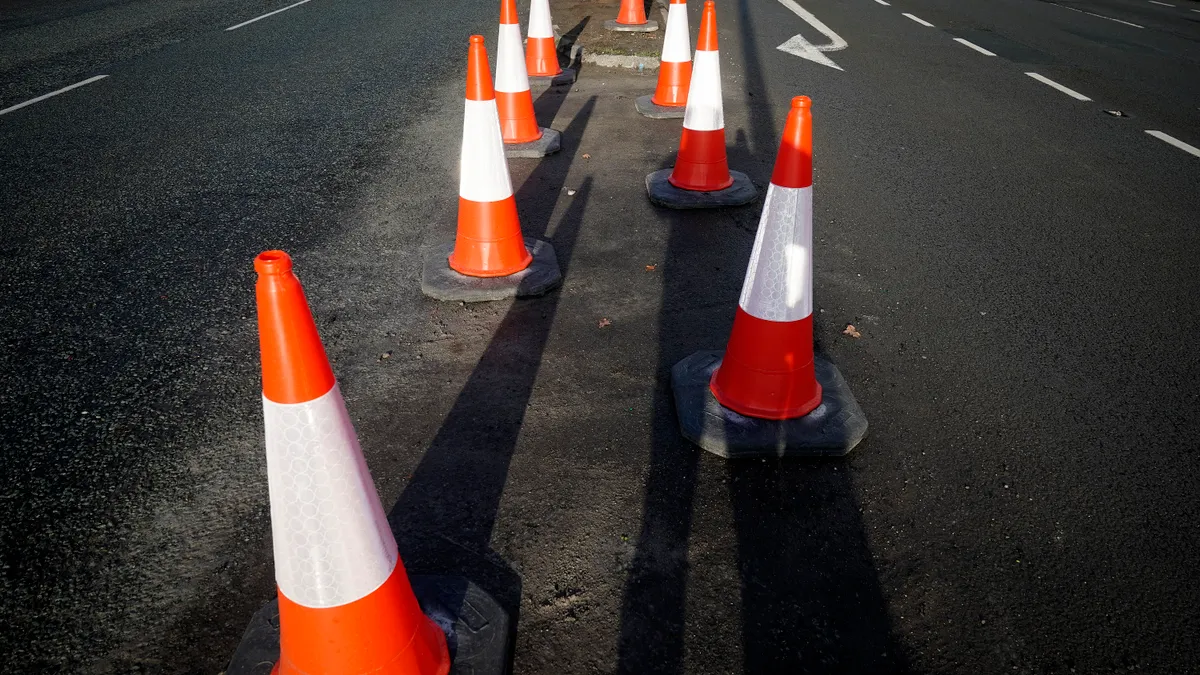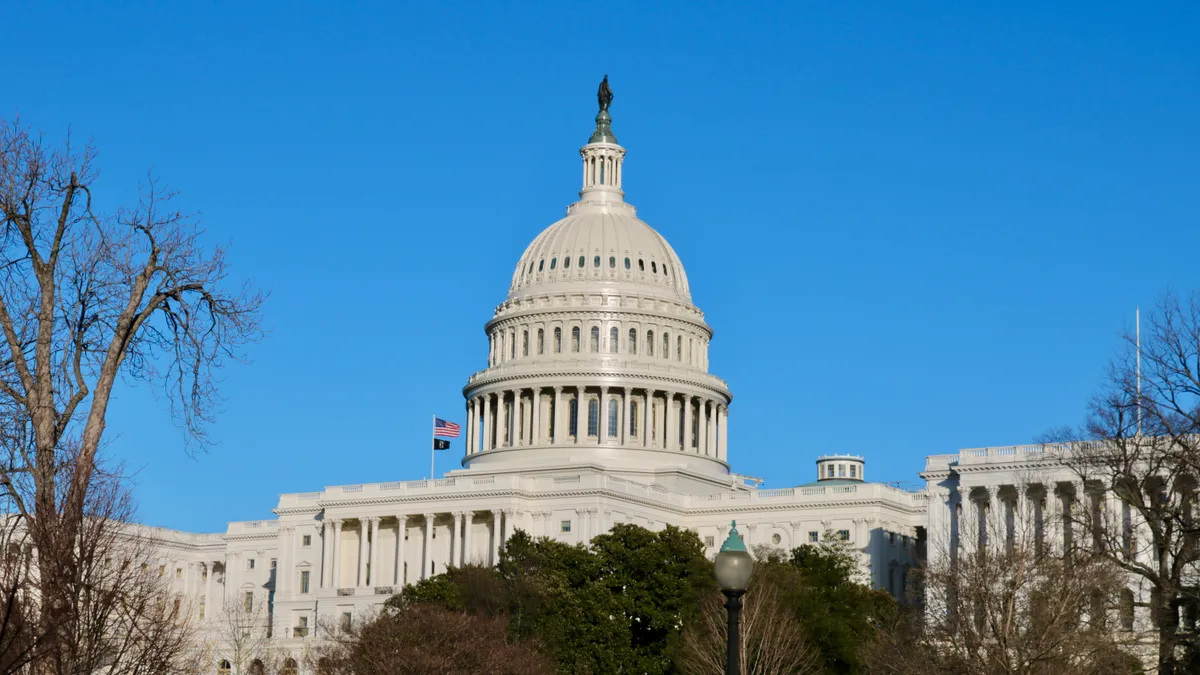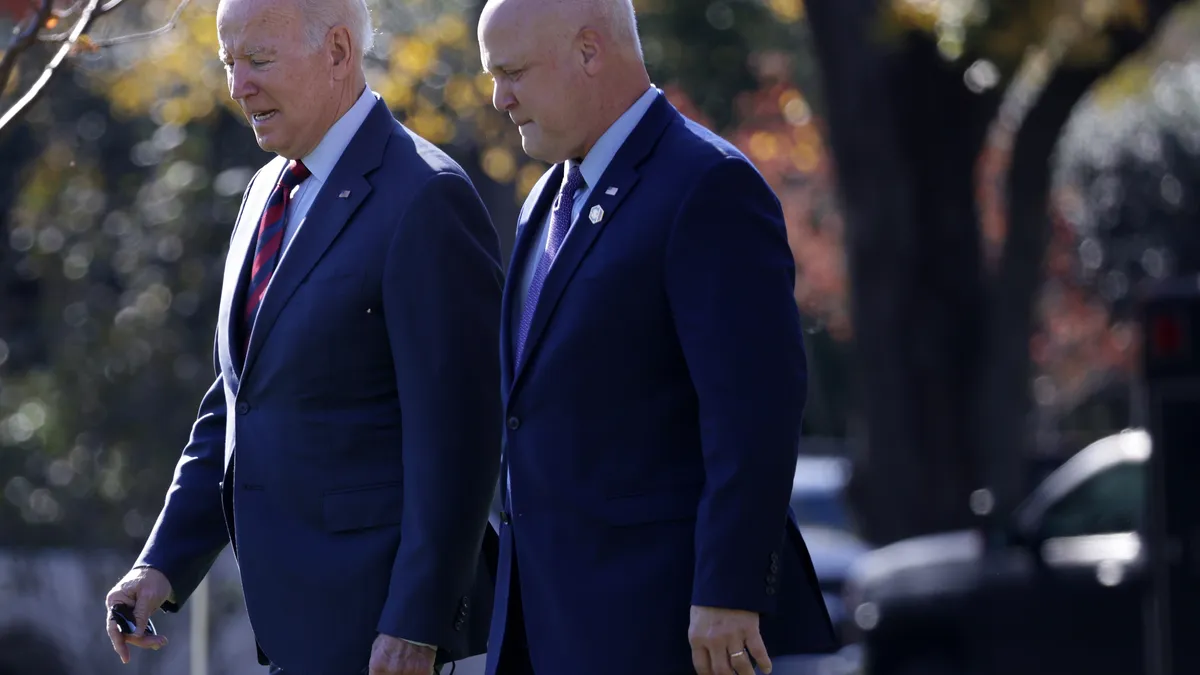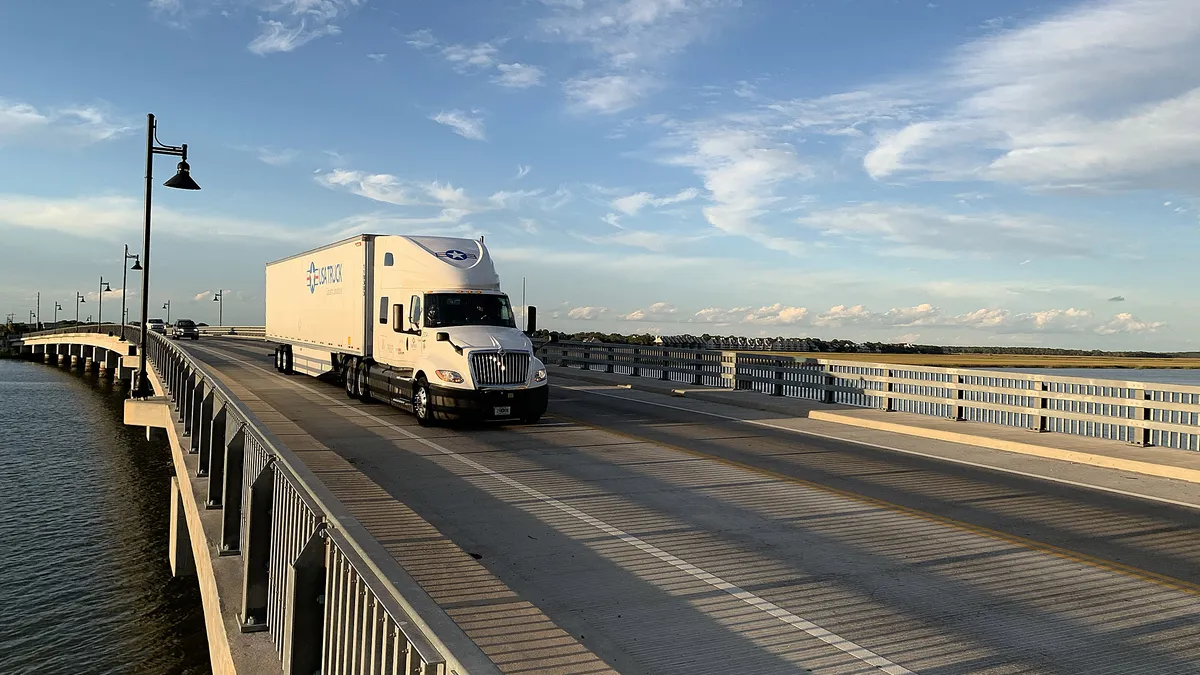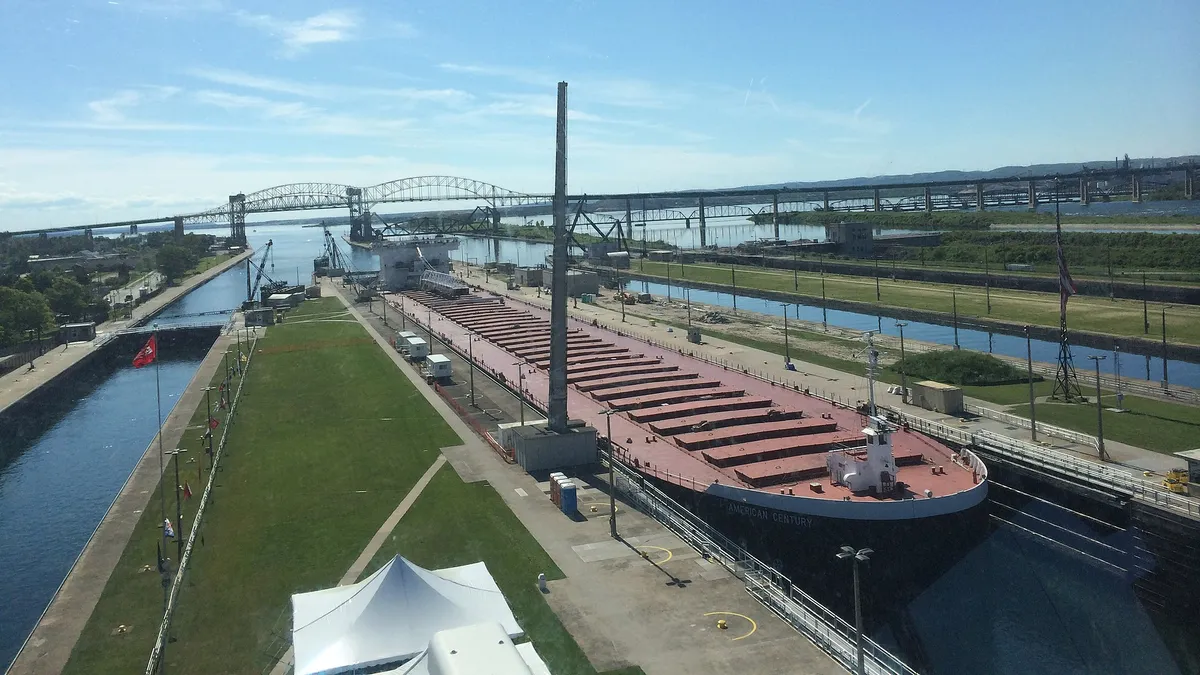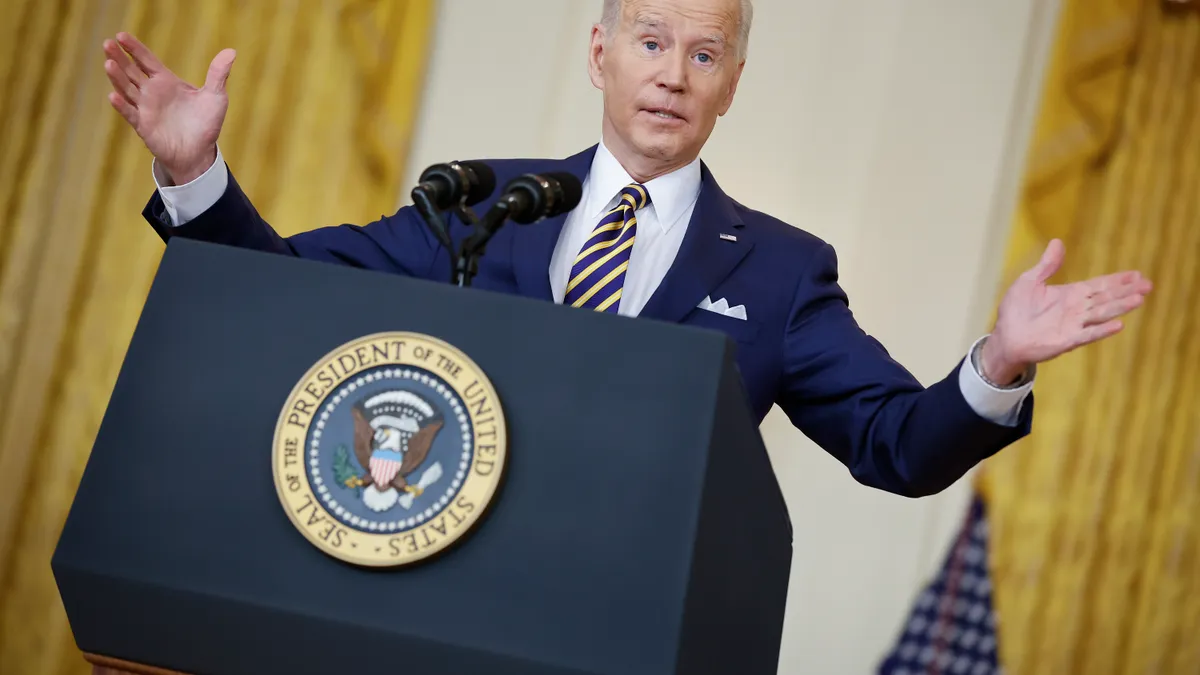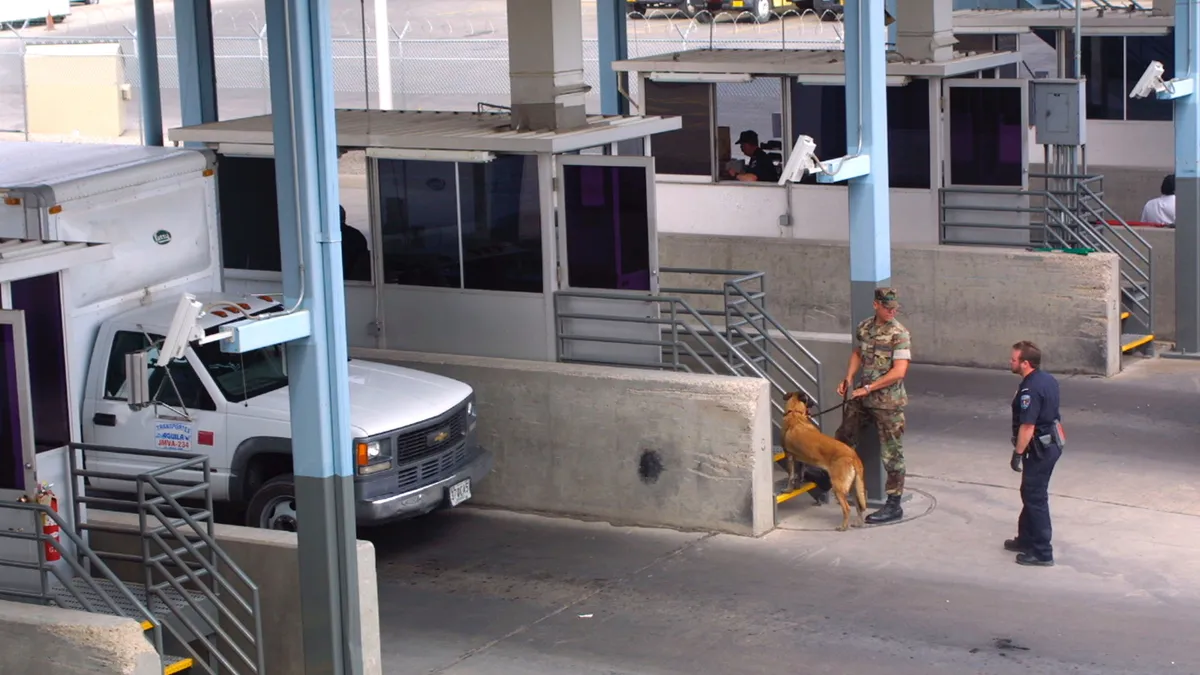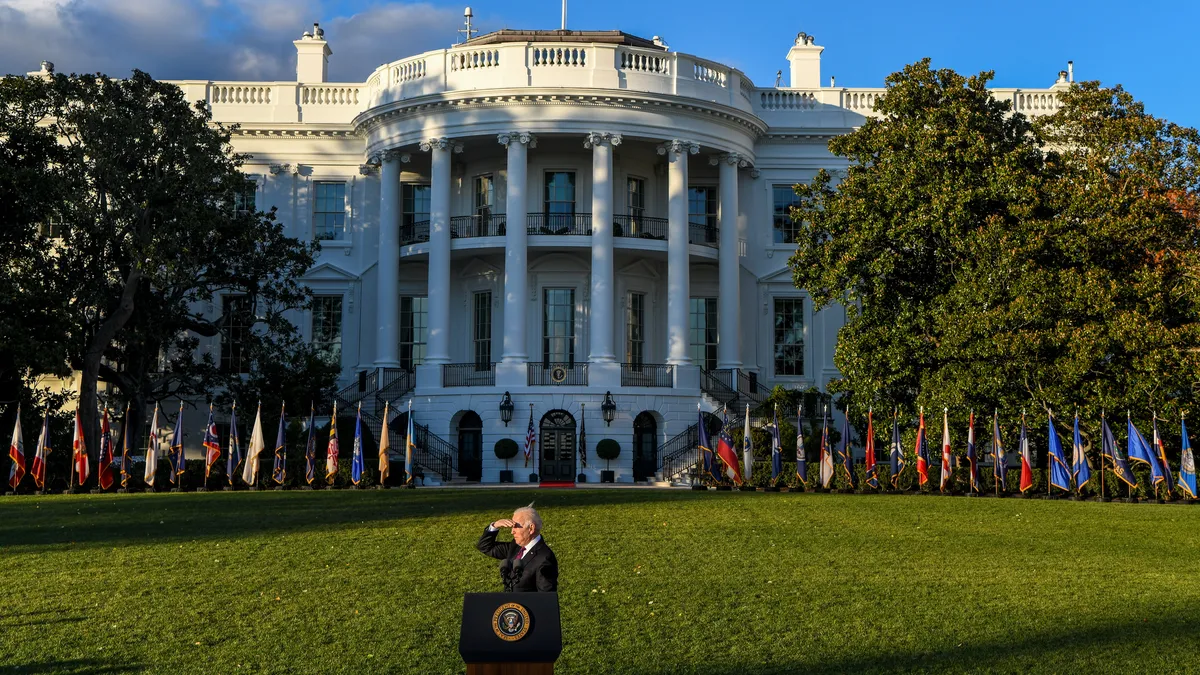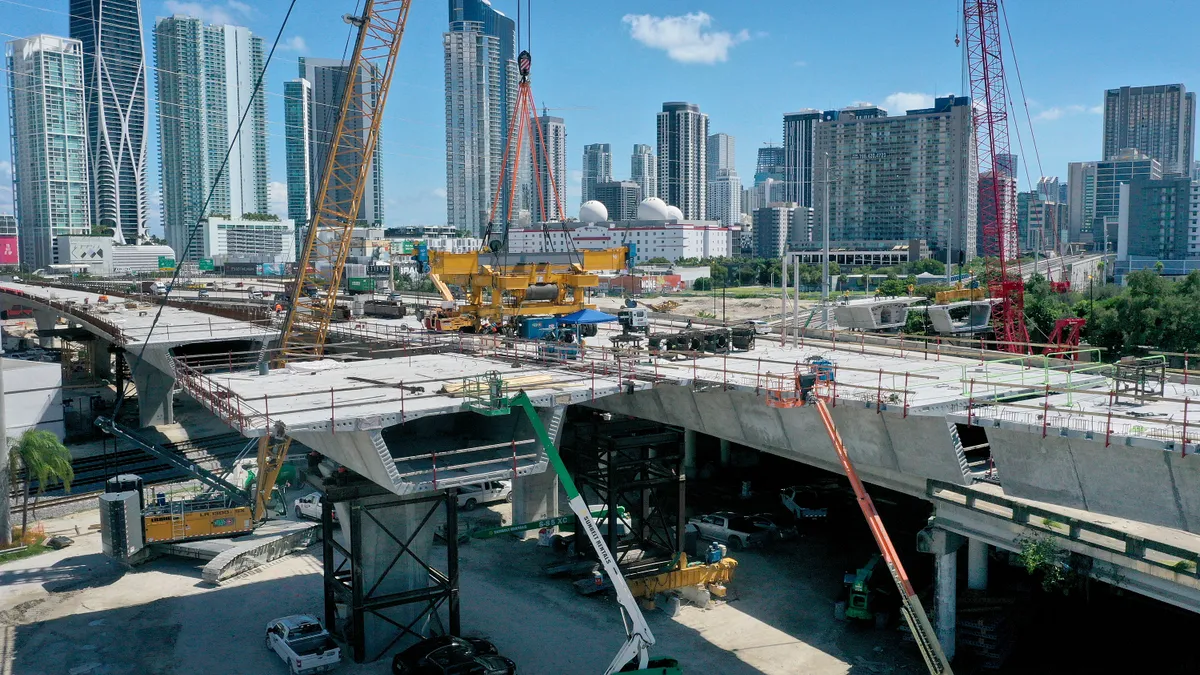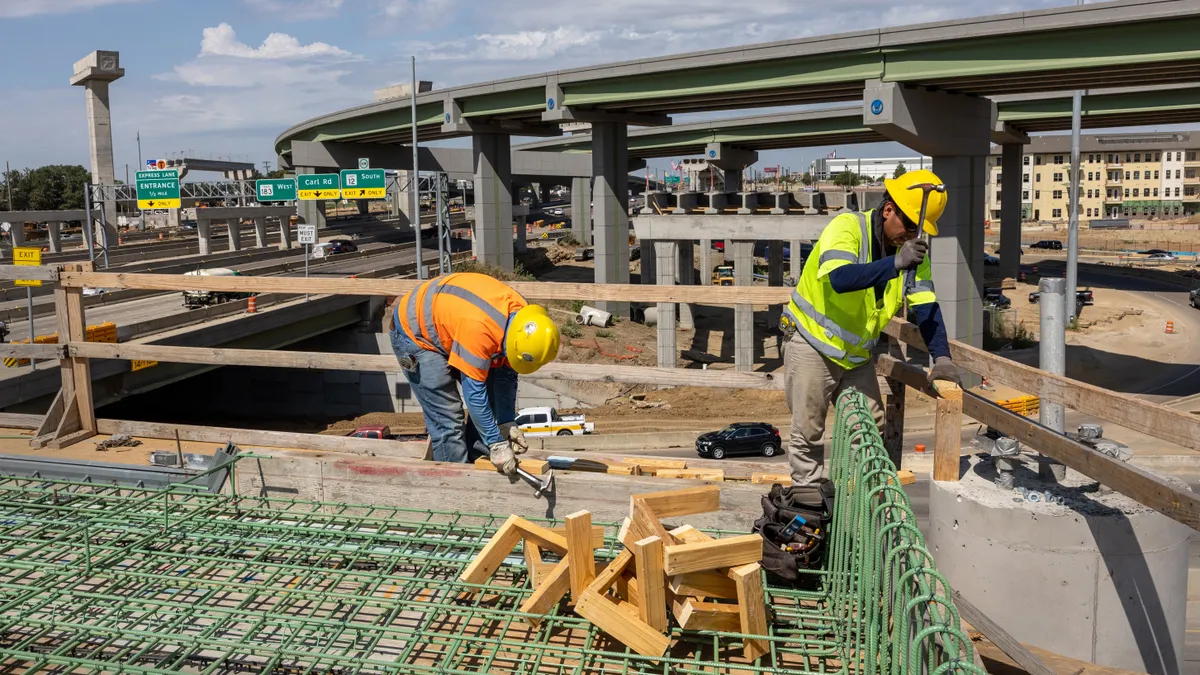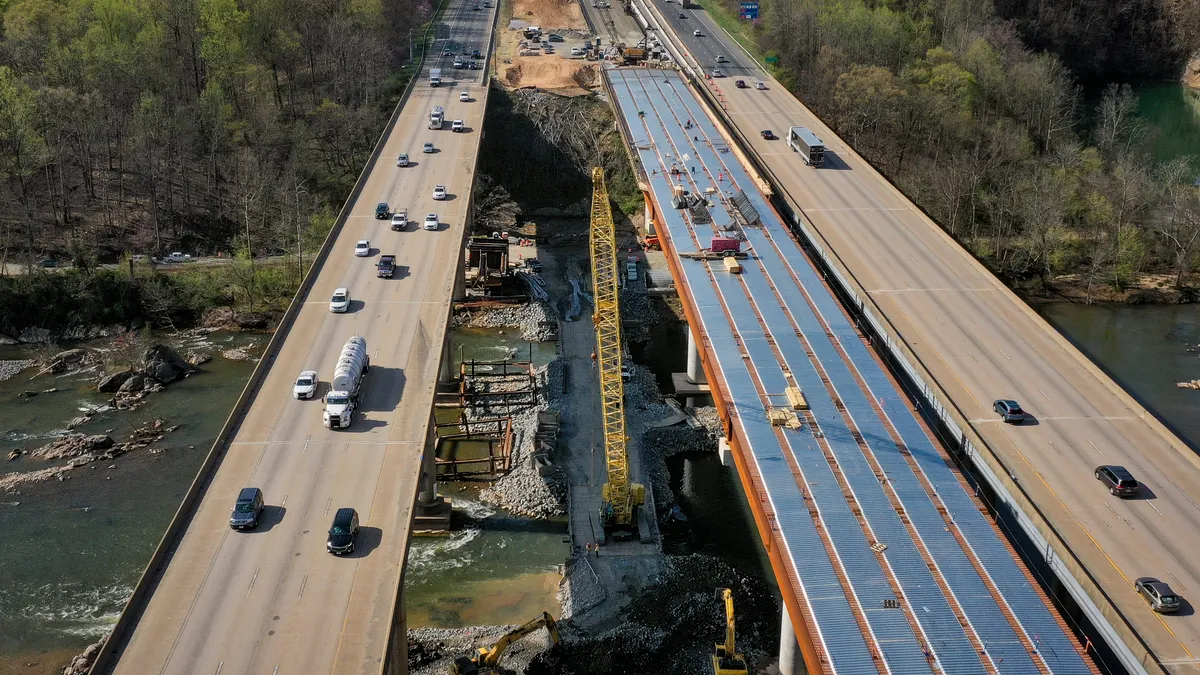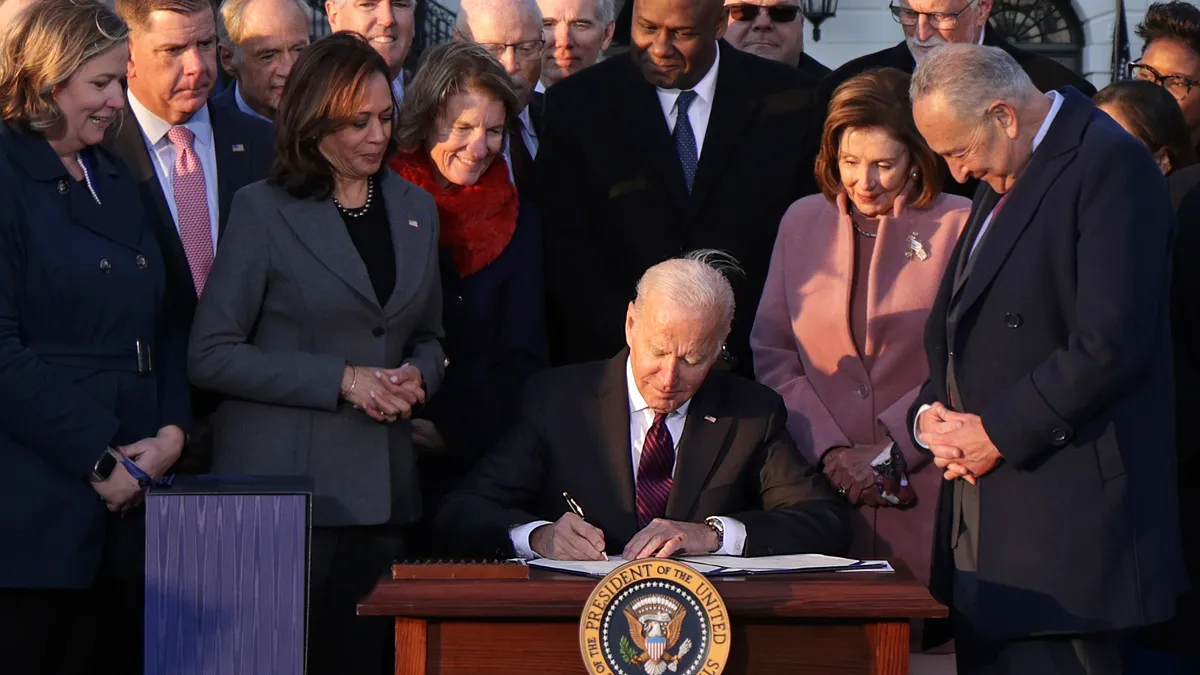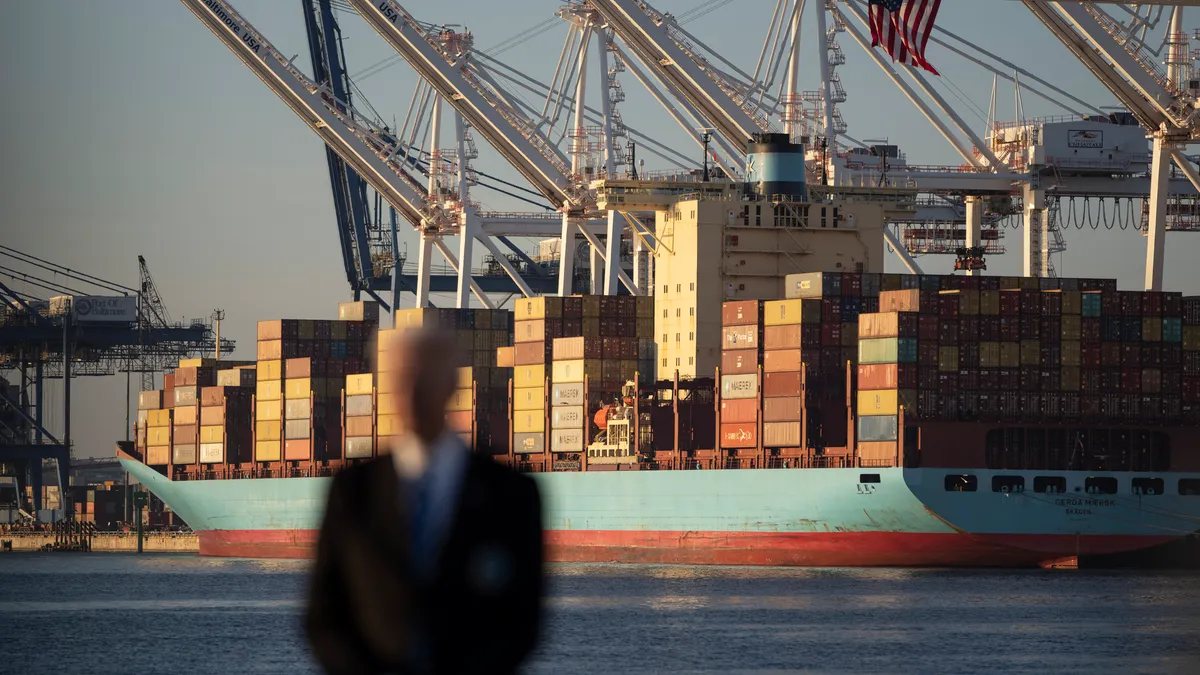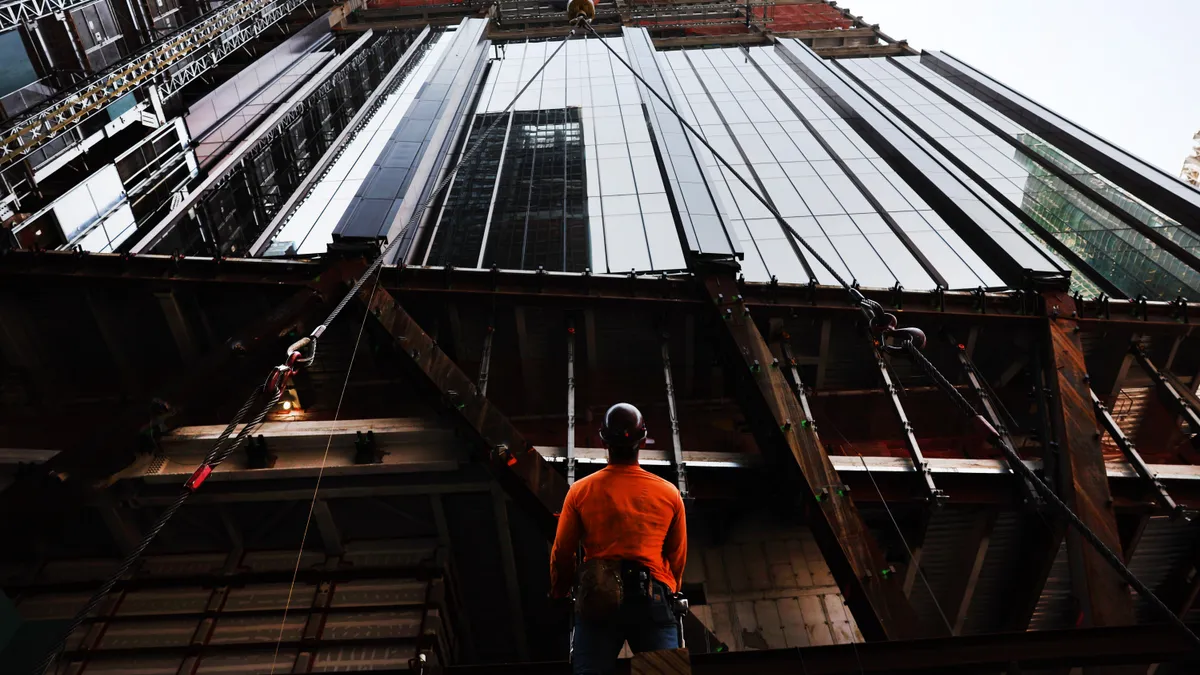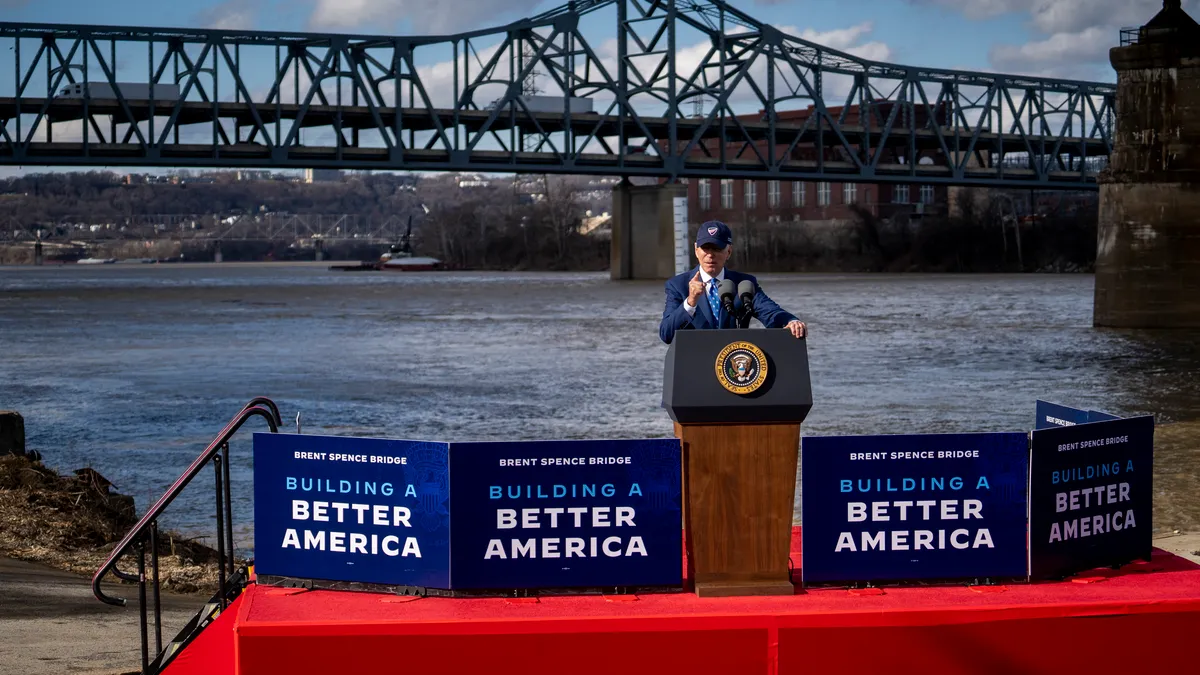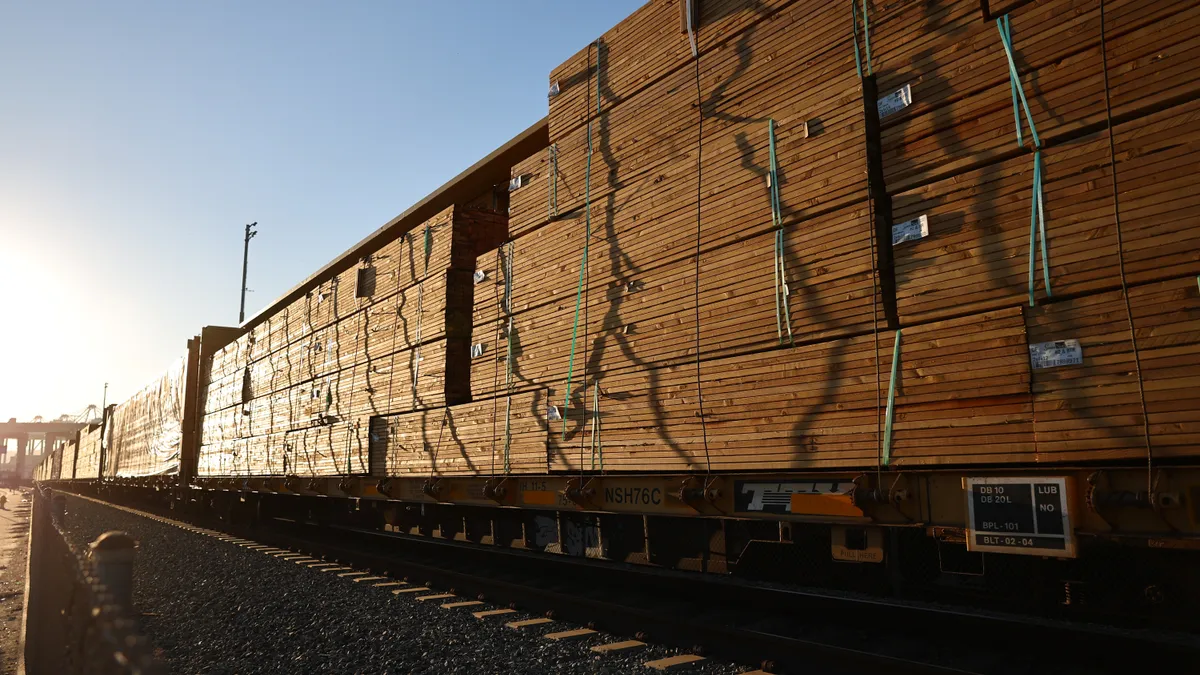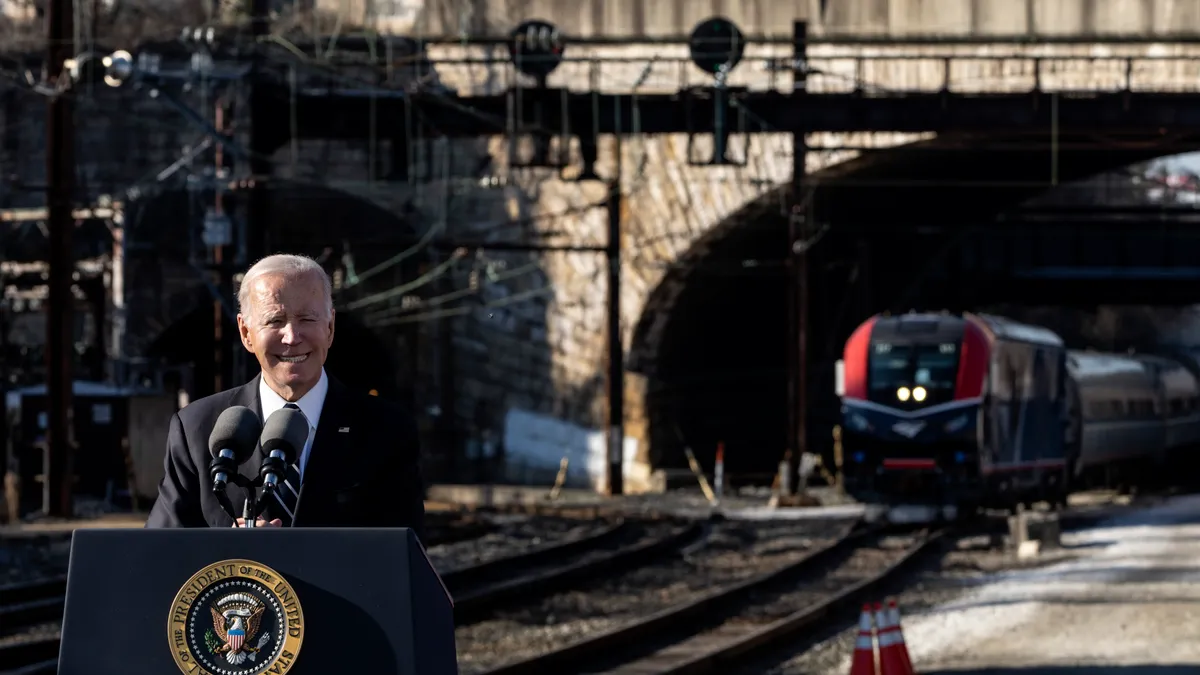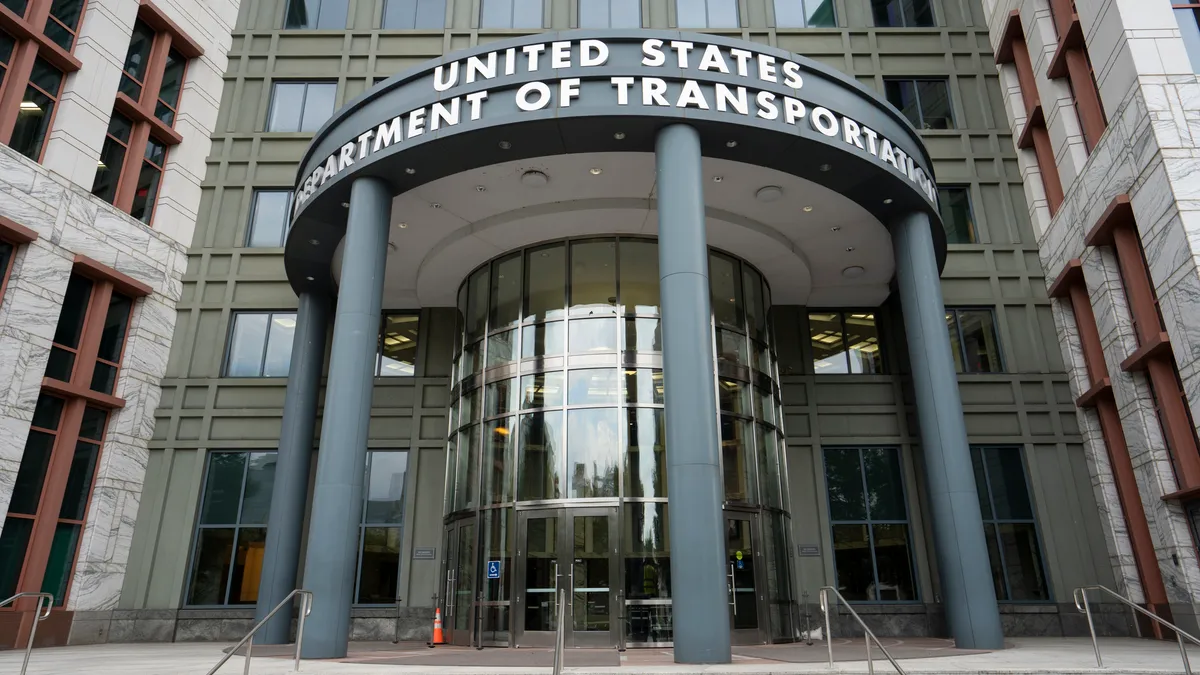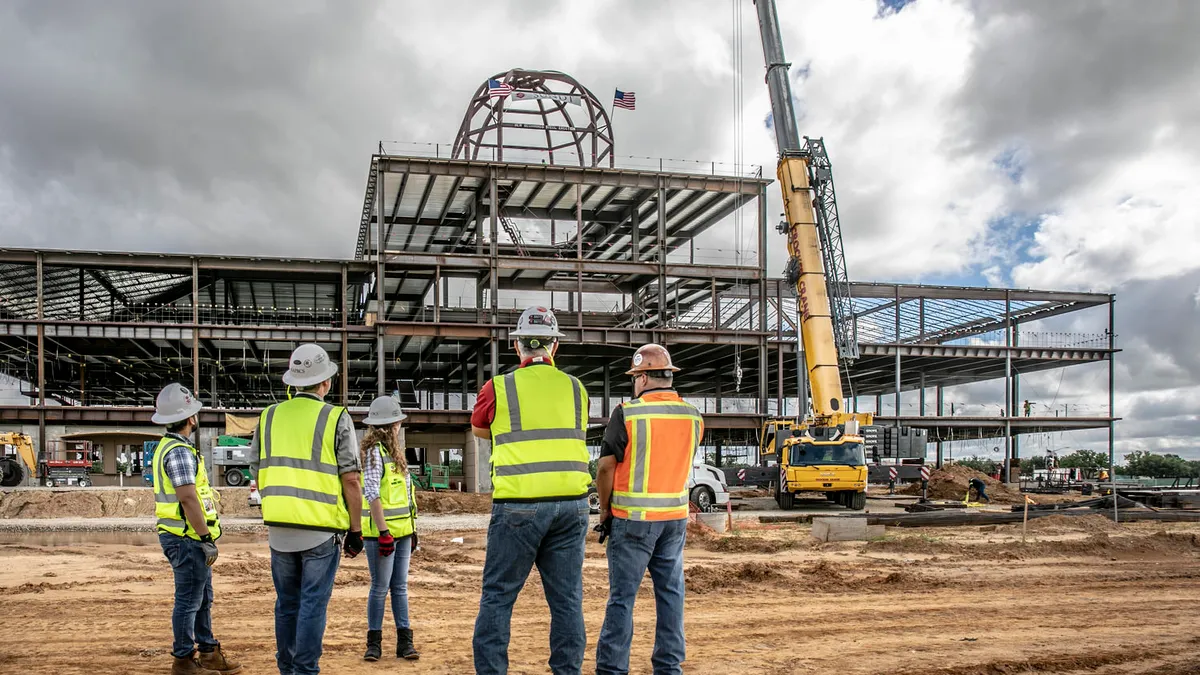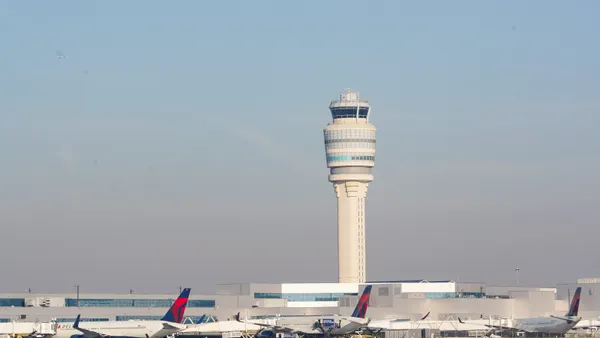Dive Brief:
- An influential group of state transportation officials told the Biden administration last month not to add red tape or overly prescribe how to spend funds from the Infrastructure Investment and Jobs Act. They also highlighted states' varying transportation dynamics and needs, and said state agencies are best equipped to know how to address them.
- "A one-size-fits-all approach would create unnecessary gaps and conflicts in meeting the various transportation challenges in each state," Shawn Wilson, Louisiana's secretary of transportation and development and president of the American Association of State Highway and Transportation Officials (AASHTO), wrote in a letter dated Jan. 19.
- State transportation agencies have a great deal of legal authority to pursue their own goals, according to experts, no matter what federal officials want.
Dive Insight:
In December, the Federal Highway Administration released guidance indicating that it wanted as much of the new IIJA funds as possible spent on projects that advance Biden administration goals like addressing climate change. FHWA would encourage such projects by, for example, expediting environmental reviews of bike lane projects but scrutinizing the environmental impacts of new motor vehicle lanes, Stephanie Pollack, deputy administrator of the FHWA, indicated. The guidance also said state agencies should focus on fixing existing roads before adding new ones.
"States very much share FHWA's policy priorities outlined in the guidance," Wilson wrote in the letter to Pollack, and highlighted localities' advancements on aligned goals like resilience efforts, better transit and "complete streets." But one area where they don't see eye to eye with the Biden administration is on its goal to limit road expansions.
"Proposals to require 'Fix it First' solutions or prescribe the use of certain sources of funding for system preservation do not reflect the use of strategic planning but rather a one-size-fits-all approach to asset management," Wilson wrote.
The letter defended states' ability to choose which projects they fund, since road networks and other factors vary so widely and they are most attuned to their own needs. State agencies are most capable of managing their transportation needs, and don't want to manage any new processes in order to accomplish them, the letter said.
"Given the outsized public expectations, these much-needed programs and projects must be advanced expeditiously. For this to occur we must work together and utilize existing planning processes," Wilson wrote. "We encourage FHWA to view the state DOTs as an efficient conduit through which to engage local governments."
Wilson also pointed out that federal dollars only make up a fraction of states' transportation budgets, and the FHWA has little say in what projects states ultimately pursue.
"AASHTO also appreciates FHWA's acknowledgement that this guidance does not suggest that the agency has the authority to require states to invest federal formula funds in certain types of projects nor restrict them from investing in other types of projects," Wilson wrote.
AASHTO officials are not the only ones asking for more leeway. On Jan. 19, 16 Republican governors sent a strongly worded letter to the White House that also pushed for more state control over how to use IIJA funds, and against road-widening prohibitions in particular.
"Your administration should not attempt to push a social agenda through hard infrastructure investments and instead should consider economically sound principles that align with state priorities," the letter said.
However, there's a more immediate challenge to advancing IIJA-funded projects: federal officials say much of their work is on pause since Congress has not signed a transportation appropriations bill. The continuing resolution passed in December 2021 keeps the federal government running but does not allow full access to increased funding from the IIJA.



